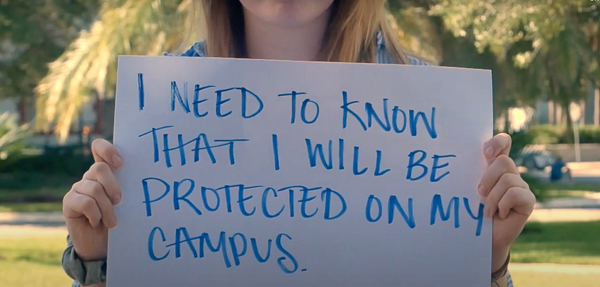By Quinn Sheehan
Title IX is a department that is dedicated to helping students that have been in uncomfortable or discriminating situations. But are they really helping?
Throughout the last 50 years of Title IX a lot has changed to help and hurt survivors. When Title IX was put into effect it was because of the Civil Rights Act of 1964.
Bringing equality and ending discrimination on race, color, sex and religion in education. In the last 50 years, different U.S administrations have amended and added to the law.
In 2020, the Trump administration changed the terms of unwelcome conduct from “severe, pervasive, or objectively offensive” to “severe, pervasive, and objectively offensive.” The changes made to the statue put three individual categories into one subject altogether, which can lessen the justice that survivors can receive.
Time Magazine reporter Nicole Bedera took note of the challenges students now face with Title IX requirements and decided to share what she found.
“Even if an instance of sexual misconduct meets the high bar of “objectively offensive,” there are new parameters on the context in which it had to take place to require university intervention. A sexual assault must have happened either on campus or “in conjunction with an education program or activity,”’ Bedera said.
Title IX is defined in a single sentence but each administration adds pages making it more complicated for students to comprehend. The new guidelines now consist of a 2,033-page document.
Flagler College Assistant Dean of Students for Title IX and Equity and Director of Diversity, Equity and Inclusion, Jessica Kobryn works with all students to ensure they have a voice that is heard while at Flagler.
“Title IX has a pretty high threshold of definitions. It has to meet a certain definition for it to be considered under the sexual harassment policy. which is the policy that Title IX dictates essentially,” Kobryn said.
Students lack trust in their schools to help them however, if the complaint fits the Title IX policies then often the Dean of Student Affairs can further assist the student.
Allison Kindley talked to Title IX her Freshman year after dealing with a situation that took place on campus. Kindley fought for months to get justice but didn’t receive the outcome she was looking for.
“Something needs to be done, taking some kind of action to prevent it from happening because the fact that it happens so much is disgusting,” Kindley said.
Inconsistency is the Consistency: The Title IX Reporting Process for Sexual and Gender-Based Misconduct within Maryland Public Universities; a research article by Aliyah Webermann and Kathryn Holland demonstrates the negative and positive sides of Title IX on campuses.
Holland and Webermann spoke to students on their campus to receive feedback about Title IX. Maryland University was among the colleges they visited where they spoke to two students about their experiences, Amy and Alex.
“Students generally described a negative perception of the Title IX office and their university’s response to sexual and gender- based misconduct prior to interacting with the office. For instance, Amy stated that students she knew who had been through the Title IX process “are not happy with how the institution handles things,”’ Webermann and Holland said.
When schools are given federal funding the government gets to dictate how they approach sexual assault and discriminatory cases.
“I think a barrier to reporting is that students just don’t know what’s going to happen in the future. So what I will say to every student and I would want every student to know is that you can kind of sit here and tell me what happened to you and leave out identifying information,” Dr. Kobryn said.
Flagler College wants all students to feel safe on campus and Dr. Kobryn realizes that it can be scary to share your story. Kobryn offers her support and encourages students to talk about their situation if they feel comfortable doing so.
With the 2020 guidelines adjusting the way they did, now even if a case is found to be objectively offensive there are still other parameters that it must reach.These parameters can still make it difficult for students to seek appropriate help.
Students should feel safe on their campuses knowing that their assailants will be punished appropriately.
“Nobody has the right to touch me without my consent either. But apparently that didn’t matter,” Kindley said.



Be the first to comment on "Is Title lX failing students in the United States?"